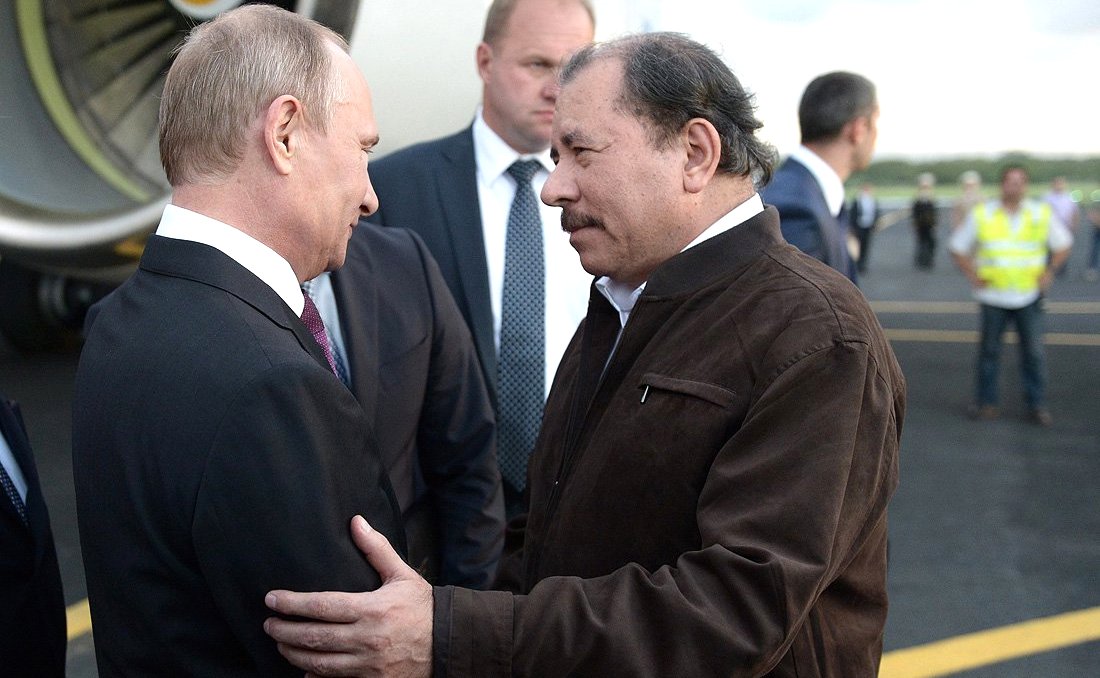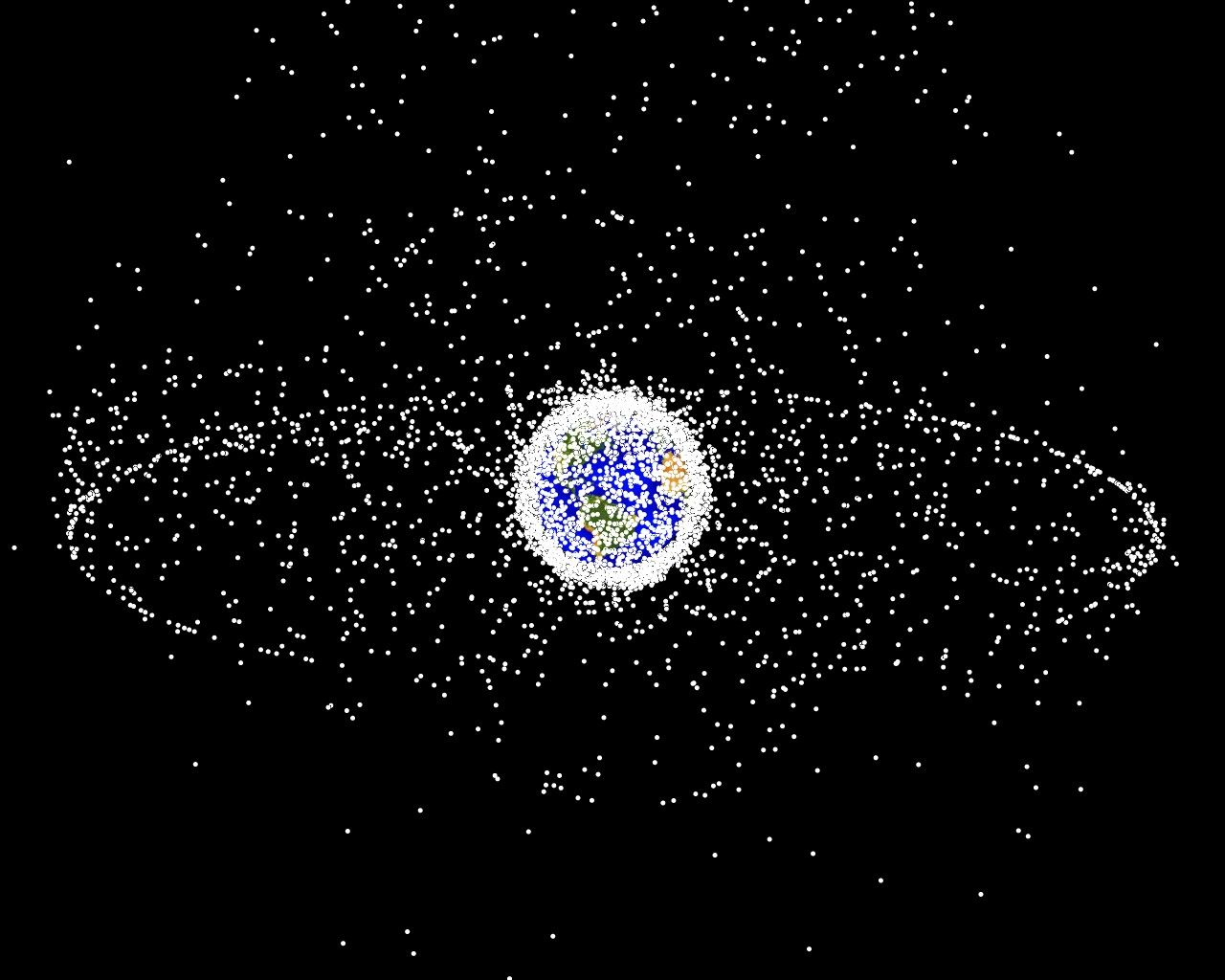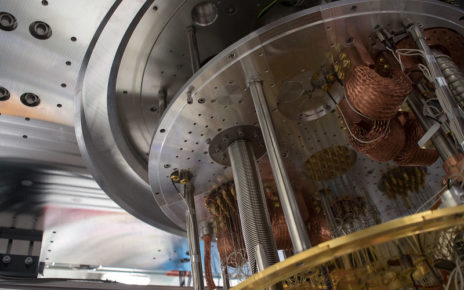Russia’s growing involvement in Nicaragua has caught the attention of the United States. As the Washington Beacon reports, the recent security agreement signed between Russia and Nicaragua includes the sale of 50 Russian-built T-72 tanks, not to mention the construction of a Russian signals intelligence (SIGINT) base on the country’s Pacific coast. The agreement displays Russia’s increased interest in the Western hemisphere.
The construction of the multi-story Russian base is currently underway. There is a sign at the base labeling the building as an anti-drug training center funded by the Russian Federation. Roberto Canjina, a Nicaraguan security analyst, discusses the odd nature of Russia’s interest in the fight against narcotics in Central America: “Russia doesn’t have anti-narcotics intelligence information here, not like the Americans do”. He goes on to describe Russia’s distribution of aid as being mostly food and medicine. However, following the deterioration in Russian-Western relations in the wake of Crimea’s annexation, the aid quickly turned into military training and supplies.
Daniel Ortega, the leader of the Sandinista National Liberation Front (SNLF) has been in power since 2006. It’s worth remembering that Ortega who was the leader of the Soviet-backed SNLF communist government, which previously replaced by force the pro-Western Somoza dictatorship, was fighting against a pro-US insurgency called the Contras in the 1980s in the context of the Cold War when Nicaragua was a proxy battleground between East and West. Years of stalemate led to a peaceful resolution in 1989 leading to Nicaragua’s first free elections in 1990 which Daniel Ortega lost to a Contra coalition. He went on to lose two more elections before finally being elected in 2006. Ortega’s relationship with the US has always been strained given the Regan administration’s support for the Contras during the Cold War. At the same time, the USSR provided economic and military support to the Sandinista government to fight the Contra insurgency.
In 2014, a potential threat to Nicaraguan democracy came as the Nicaraguan National Assembly approved the modification of the constitution to remove the term limit a president can serve. The amendments were inspired by Ortega, who justified the move to ensure the long-term stability of Nicaragua.
Although the purchase of military equipment can be seen as part of Nicaragua’s domestic agenda of strengthening defenses against increasing political protests, Ortega’s actions have also raised concerns in the neighboring country Costa Rica, a nation that does not have an army. President of Costa, Rica Luis Guillermo Solís, described the purchase of military equipment as “unnecessary” going on to say “more than a concern or a threat, it constitutes a feeling of sadness because these are people who still lack much in terms of human development”.
In November 2014, Nicaraguan officials announced the construction of the proposed Nicaraguan Canal which would connect the Pacific and Atlantic oceans. The proposed canal would serve as a deeper and wider alternative to the Panama Canal. The Nicaraguan Canal attracted Chinese billionaire, Wang Jing, who oversees the Hong Kong Nicaragua Canal Development Group (HKND). Involvement of the foreign private company’s interest in the project has stirred controversy because of concerns of giving up national sovereignty. However, plans for the proposed canal have recently slowed. With the 2015 Chinese stock market crash, Wang lost 85% of his roughly $10 billion fortune. Business insider states Wang had already invested more than 3 billion yuan into the project.
Following the United States’ decision to withdraw aid to Nicaragua due to concerns about election fraud and human rights issues, Russia has seen the deteriorating relations between the two countries as an opportunity to gain a foothold in Washington’s backyard. In 1984, when former US ambassador to Panama Deane Hinton was asked about the greatest security threat in Central America, he replied “The greatest security threat is the possibility that in a state such as Nicaragua with Cuban and Soviet ties, you’re going to end up with Soviet submarine bases”. He went on to say “People have got to understand that it is not that the Nicaraguans are going to overthrow the government of the United States. It’s that having this kind of a Leninist police state in Central America will have an impact upon her neighbors and conceivably provide a base for a superpower”.
Although it is too soon to be comparing today’s relationship between Russia and Nicaraguan to that of the Cold War era, the potential of a Nicaraguan Canal and further destabilization of the political arena do pose a risk to US interests in Central America.
Photo: Russian president Vladimir Putin arrived on a working visit in Nicaragua where he met Nicaraguan president Daniel Ortega (2014). Photo courtesy of Kremlin.ru
Disclaimer: Any views or opinions expressed in articles are solely those of the authors and do not necessarily represent the views of the NATO Association of Canada.




